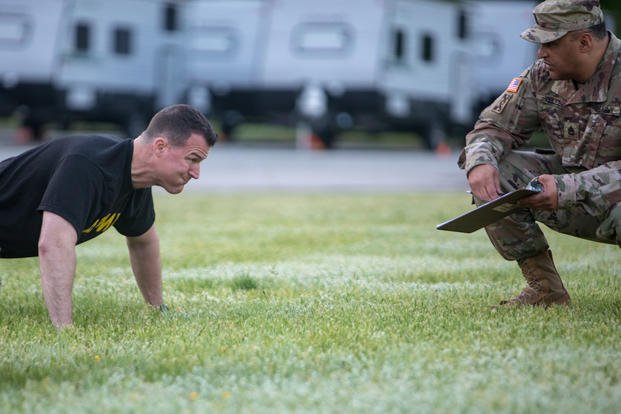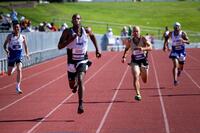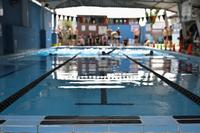Training large groups with varying fitness levels is one of the most challenging things to do well. Success will be defined by increasing the group's fitness levels and doing so without injuring people, especially those who may be ill-prepared for new and challenging exercises.
A PT coordinator concerned with adding new ways to test the group in exercises and events not common to the standard physical fitness test can utilize many of the group activities from the following list.
There are many tests that are used by a variety of military, police, SWAT teams and special-ops units. Some are actual fitness tests, selection evaluations, and general and advanced fitness events done during actual boot camps, academies and even selection and assessments.
If your test is what I call the PFT bible -- the standard push-ups, sit-ups and 1.5-mile run used by most of the military and half of the police departments in the nation -- you need to change the routine a little bit. Some classic additions on military bases are to run local obstacle courses several times and hold special instruction for individual obstacle trouble for the group as you see struggles occurring. Running, walking or rucking an endurance course (trail run) is a great way to get off the pavement and experience nature while training.
These exercises are easy to add, as you can "rest" with running, sit-ups and crunches, plank poses and push-ups between a circuit of many of the following list of other testable exercises.
Running/Other Cardio Additions
- 120-yard shuttle run (4 x30 yards): Used by the Drug Enforcement Administration
120-foot shuttle run (4 x 30 feet) -- used by service academies - 300-meter sprint: Used by the FBI
- Longer runs: Two-mile run (Army), three-mile run (Marine Corps)
- Beep test: A version of the shuttle run done on "beeps" at decreasing intervals each lap -- various police departments
- 12-minute swim test: Coast Guard
- 500-meter or 500-yard swim test: Used by Air Force pararescue jumpers, Navy SEAL, EOD and divers
- Step test: Step up on a box (up and down) or use stair stepper for 3-5 minutes for 60 steps per minute with full gear (various federal police and firefighters)
- 40-yard sprint: From prone position carrying weapon and gear, used by FBI SWAT
- Rucking: 40- to 50+-pound backpack at a minimum pace of 15 minutes per mile (Army, Marines special ops)
Calisthenics/Weights/Core Additions
- Pull-ups/flexed arm hangs: Used by Marines, various special ops, police departments
- Pull-ups with body armor: Used by special ops/FBI SWAT
- Bench press: Body-weight percentage for max reps -- used by Federal Law Enforcement Training Centers (FLETC), various spec ops
- Deadlift/tire flips/log lifts: Deadlifts are actual tests in many special-ops group's selection courses, often from body weight to 1.5-2 times body-weight lifts.
- Fireman carry/body drag/stretcher drills: Some units have timed/pass-fail fireman carry for 100-200 meters. Drag a partner or use a stretcher with two or more carriers to lighten the load for a short distance.
- Kettlebell snatch test: Five or 10 minutes (used by U.S. Secret Service)
- Ammo can lifts and farmer walk: Using weights or ammo cans. Carry weight 50-100 meters and lift overhead as many times in a period of time. (Marines, firefighters)
- Vertical jump/broad jump: Jump as high as you can from a stationary position (various police)
Adding many of these exercises into a fun circuit or a group of upper-body and lower-body day supersets will create some variety for your PT programs. These exercises are related to the standard physical fitness test in some way and actually will help your team continue to improve on the PFT and add new life to the same old PT exercises.
Some other ideas can be found in the book Tactical Fitness, with many of the above elements and others organized into an exercise testing program called the Dirty Dozen.
Stew Smith is a former Navy SEAL and fitness author certified as a Strength and Conditioning Specialist (CSCS) with the National Strength and Conditioning Association. Visit his Fitness eBook store if you're looking to start a workout program to create a healthy lifestyle. Send your fitness questions to stew@stewsmith.com.
Want to Learn More About Military Life?
Whether you're thinking of joining the military, looking for fitness and basic training tips, or keeping up with military life and benefits, Military.com has you covered. Subscribe to Military.com to have military news, updates and resources delivered directly to your inbox.


















